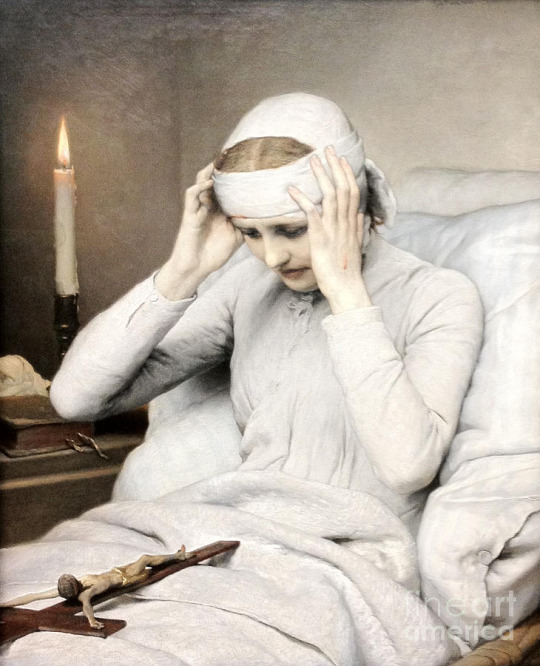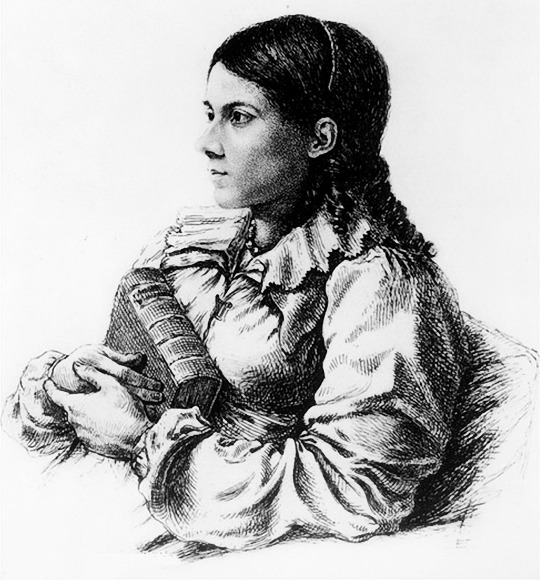#clemens brentano
Text
Concept: Goethe, Schiller, the Schlegels, Kleist, Humboldt, Novalis, Achim, Bettine, Clemens Brentano, and Heine singing "I'm Gonna Be (500 Miles)" by the proclaimers.
#johann wolfgang von goethe#friedrich von schiller#the schlegels#heinrich von kleist#alexander von humboldt#friedrich von hardenberg#achim von arnim#bettine brentano#clemens brentano#heinrich heine#german romanticism#german literature#novalis speaks
2 notes
·
View notes
Text
Works about a young person so attractive that it brings them misery, shrinks their world more and more, and eventually dooms them:
Zu Bacharach am Rheine by Clemens Brentano
I'm Too Sexy by Right Said Fred
#follow raginrayguns.tumblr.com for more two element bullet lists#Lorelei#Lore Lay#Zu Bacharach am Rheine#Clemens Brentano#I'm Too Sexy#Right Said Fred
1 note
·
View note
Text
Just found a writing notebook I had forgotten about and one entry under random ideas is just "Crowley as Lore Lay, make the poem gay" which is honestly a mood. Might still write that, but without the whole suicide due to a broken heart thing because that's just not the vibe. Maybe take out the missing lover and make Aziraphale one of the knights.
Question is if anyone outside Germany would actually have any interest in that or if I should just cater to the like three people who might be the target audience and write it in German.
0 notes
Text
Fußgängerbrücke wegen Bauarbeiten gesperrt
Fußgängerbrücke wegen Bauarbeiten gesperrt
(Symbolbild – Hofherr)
Neckarelz. (pm) Wegen Sanierungsarbeiten ist die Fußgängerbrücke über die Elz hinter der Clemens-Brentano-Schule/in Höhe des Tennisclubs Neckarelz in der Zeit vom 21. November bis voraussichtlich 02. Dezember für den Fußgängerverkehr gesperrt. In dieser Zeit erfolgt eine umfassende Sanierung der Brücke, bei der unter anderem der Brückenbelag ausgetauscht wird.

View On WordPress
0 notes
Text
Groß ist nicht, wer breit und lange
Groß ist nicht, wer breit und lange
Schatten in die Welt hin streut,
Vor dem Sonnenuntergange
Wächst der Schatten allezeit.
(Clemens Brentano)
4 notes
·
View notes
Text
ich war die woche bei wieland zu besuch und


seine kappe !! sie ist so rund !! (meine augen tränten ein wenig als ich sie sah aber das lag sicher ´lich am ähhh wind)

da isser wie er sie von napoleon anhatte weil er keine zeit (und lust) hatte um aus seinen hausklamotten rauszuwechseln <3
bonus:

wielands meinung zu clemens brentano weil wenn ich sage ich hab geSCHRIEN (Das Zusammenleben war unmöglich geworden)
was muss man tun damit wieland, der jede jüngere person, die auch nur in seiner peripherie vorbeiläuft, adoptiert, einen rauswirft (sich auf eine tyrannische Weise verhalten apparently)
2 notes
·
View notes
Text
Das besondere Gedicht
Glück
Glück ist gar nicht mal so selten,
Glück wird überall beschert,
vieles kann als Glück uns gelten,
was das Leben uns so lehrt.
Glück ist jeder neue Morgen,
Glück ist bunte Blumenpracht,
Glück sind Tage ohne Sorgen,
Glück ist, wenn man fröhlich lacht.
Glück ist Regen, wenn es heiß ist,
Glück ist Sonne nach dem Guss,
Glück ist, wenn ein Kind ein Eis isst,
Glück ist auch ein lieber Gruß.
Glück ist Wärme, wenn es kalt ist,
Glück ist weißer Meeresstrand,
Glück ist Ruhe, die im Wald ist,
Glück ist eines Freundes Hand.
Glück ist eine stille Stunde,
Glück ist auch ein gutes Buch,
Glück ist Spaß in froher Runde,
Glück ist freundlicher Besuch.
Glück ist niemals ortsgebunden,
Glück kennt keine Jahreszeit,
Glück hat immer der gefunden,
der sich seines Lebens freut.
Clemens Brentano
2 notes
·
View notes
Text
Schloß Heidelberg

L’origen de la ciutat de Heidelberg, més enllà de l’homo heidelbergensis, la mandíbula del qual fou trobada el 1907 i van datar la presència de vida humana a Europa en prop de 600.000 anys, es troba a l’emplaçament del seu castell, on els celtes ja s’hi havien instal·lat pels volts del segle V a.C. bastint una fortalesa.
La seva situació a la riba del riu Neckar, un dels afluents més cabalosos del Rin, li va dotar d’una importància estratègica que els romans, en el seu avanç per terres de Germània van saber veure. L’any 40 d.C., en temps de l’emperador Calígula, van instal·lar un campament a l’antiga fortificació celta i s’hi van estar fins el 260, quan la pressió dels pobles germànics va fer recular la frontera imperial.
La foscor de l’Alta Edat Mitjana va proporcionar poca informació sobre la població que havia crescut a recer de l’antic campament romà. Cap al 769 se la cita com a Bergheim i el 863, la muntanya Heiligenberg acull un monestir consagrat a Sant Miquel.
Cap al 1155, l’antiga fortalesa celta, reconvertida en campament romà, ja és un castell i cau sota l’autoritat dels Hohenstaufen. La ciutat, vinculada geogràficament a la regió de Suàbia, va quedar lligada als destins del Palatinat, un territori del Sacre Imperi Romano-Germànic que acabaria sent regit per la branca bavaresa dels Wittelsbach, i del que Heidelberg es constituí en capital.
Les vicisituds religioses i bèliques van fer que els segles XVI i XVII portessin la inseguretat a Heidelberg, que va viure diferents setges i saqueigs, des de l’inici de la Guerra dels Trenta Anys. Al segle XIX va acollir una Assemblea Nacional Alemanya i una rebel·lió contra Prússia, que llavors estenia els seus territoris per Renània i la seva conca.
La vida cultural de la ciutat té en la seva universitat, la més antiga d’Alemanya (1386) un dels seus baluards, on es va desenvolupar l’Humanisme i la Reforma i on Martí Luter va defensar les seves tesis el 1518.
En l’epoca moderna hi van destacar especialment alguns dels més prestigiosos filòsofs dels segles XIX i XX, com Georg Hegel, Hannah Arendt, Jürgen Habermas o Karl Jaspers. Potser per això, hi existeix el anomenat Passeig dels Filòsofs (Philosophenweg, en alemany), que resumeix el que va representar el Romanticisme alemany per a la ciutat, amb bucòliques vistes de Heidelberg des de la muntanya Heiligenberg.
El Romanticisme alemany va tenir força presència a la ciutat, on van sobresortir autors com Clemens Brentano o Jospeh von Eichendorff. El 1925 el compositor Fred Raymond va escriure la música d’una cançó (Lied, en alemany) a la que Firtz Löhner-Beda y Ernst Neubach van posar la lletra, que resumeix l’esperit d’una època llavors ja llunyana: Ich hab’ mein Herz in Heidelberg verloren (Vaig perdre el meu cor a Heidelberg).
2 notes
·
View notes
Text



Antike (ca. 2000 vChr. bis ca. 500 nChr.)
Gilgamesch-Epos
Homer: Ilias, Odyssee
Äsop: Fabelsammlung
Caesar, Gaius Iulius: Der gallische Krieg
Vergil: Aeneis
Ovid: Metamorphosen
Tacitus, Publius Cornelius: Germania
Augustinus, Aurelius: Bekenntnisse
Herodot: Historien
Mittelalter (500-1500)
Beowulf
Murasaki Shikibu: Die Geschichte vom Prinzen Genji
1001 Nacht
Nibelungenlied
Gottfried von Straßburg: Tristan
Wolfram von Eschenbach: Parzival
Chaucer, Geoffrey: Die Canterbury-Erzählungen
Renaissance (1500-1600) und
Barock (1600-1720)
Boccaccio, Giovanni: Das Dekameron
Brant, Sebastian: Das Narrenschiff
Machiavelli, Niccolö: Der Fürst
More, Thomas: Utopia
Rabelais, Franois: Gargantua und Pantagruel
Cervantes Saavedra, Miguel de: Don Quijote
Grimmelshausen: Der Abentheurliche Simplicissimus Teutsch
Aufklärung (1720-1785)
Hobbes, Thomas: Leviathan
Fielding, Henry: Die Geschichte des Tom Jones, eines Findlings
Voltaire: Candide
Sterne, Laurence: Leben und Ansichten von Tristram Shandy, Gentleman
Rousseau, Jean-Jacques: Emile oder Über die Erziehung
Kant, Immanuel: Kritik der reinen Vernunft
Sturm und Drang (1765-1790)
Goethe, Johann Wolfgang von: Die Leiden des jungen Werthers
Bürger, Gottfried August: Münchhausen
Klassik (1786-1832)
Defoe, Daniel: Robinson Crusoe
Swift, Jonathan: Gullivers Reisen
Goethe, Johann Wolfgang von: Die Wahlverwandtschaften
Kleist, Heinrich von: Michael Kohlhaas
Romantik (1798-1835)
Arnim, Achim von/Brentano, Clemens: Des Knaben Wunderhorn
Grimm, Jacob und Wilhelm: Kinder- und Hausmärchen
Austen, Jane: Stolz undVorurteil
Eichendorff, Joseph Freiherr von: Aus dem Leben eines Taugenichts
Andersen, Hans Christian: Märchen
Gogol, Nikolai: Tote Seelen
Balzac, Honore de: Verlorene Illusionen, Glanz und Elend der Kurtisanen
Bronte, Charlotte: Jane Eyre
Bronte, Emily: Die Sturmhöhe
Huge, Victor: Die Elenden

Biedermeier und Vormärz (1815-1848)
Heine, Heinrich: Buch der Lieder, Deutschland. Ein Wintermärchen
Büchner, Georg: Lenz
Droste-Hülshoff, Annette von: Die Judenbuche

Moderne (1850-1968)
Melville, Herman: Moby Dick
Beecher Stowe, Harriett: Onkel Toms Hütte
Keller, Gottfried: Dergrüne Heinrich
Dickens, Charles: Große Erwartungen
Dostojewski, Fjodor: Der Idiot
Tolstoi, Lew: Krieg und Frieden
Mark Twain: Tom Sawyers Abenteuer
Storm, Theodor: Der Schimmelreiter
Wilde, Oscar: Das Bildnis des Dorian Gray
Lagerlöf, Selma: Gösta Berling, Nils Holgersson
Fontane, Theodor: Effi Briest
Mann, Thomas: Buddenbrooks, Der Zauberberg
Proust, Marcel: Auf der Suche nach der verlorenen Zeit
Joyce, James: Ulysses
Babel, Isaak: Die Reiterarmee
Fitzgerald, Francis Scott: Der große Gatsby
Kafka, Franz: Der Prozess, Das Schloss
Woolf, Virginia: Mrs. Dalloway
Hesse, Hermann: Der Steppenwolf, Das Glasperlenspiel
Döblin, Alfred: Berlin Alexanderplatz
Remarque, Erich Maria: Im Westen nichts Neues
Roth, Joseph: Hiob, Radetzkymarsch
Traven, B.: Das Totenschiff
Fallada, Hans: Kleiner Mann - was nun?
Mann, Klaus: Mephisto
Steinbeck, John: Früchte des Zorns
Orwell, George: Farm der Tiere
Machfus, Nagib: Die Midaq-Gasse
Camus, Albert: Die Pest
Greene, Graham: Der dritte Mann
Dürrenmatt, Friedrich: Der Richter und sein Henker
Nabokov, Vladimir: Lolita
Tomasi di Lampedusa, Giuseppe: Der Leopard
Frisch, Max: Homo Faber
Aitmatow, Tschingis: Dshamilja
Grass, Günter: Die Blechtrommel
Solschenizyn, Alexander: Ein Tag im Leben des Iwan Denissowitsch
Wolf, Christa: Der geteilte Himmel
Bulgakow, Michail: Der Meister und Margarita
Garcia Märquez, Gabriel: Hundertjahre Einsamkeit

Gegenwart (ab 1968)
Lenz, Siegfried: Deutschstunde
Kertesz, Imre: Roman eines Schicksallosen
Eco, Umberto: Der Name der Rose
Jelinek, Elfriede: Die Klavierspielerin
Kundera, Milan: Die unerträgliche Leichtigkeit des Seins
Morrison, Toni: Menschenkind
Vargas Llosa, Mario: Das Fest des Ziegenbocks

0 notes
Text

Sel. Anna Katharina Emmerick (Emmerich)
Gefeiert Am 9. Februar
Sel. Anna Katharina Emmerick
Nonne, Mystikerin
* 8. September 1774 in Coesfeld in Nordrhein-Westfalen
† 9. Februar 1824 in Dülmen in Nordrhein-Westfalen
Anna Katharina Emmerick wurde als fünftes von neun Kindern einer armen Familie geboren, die einen kleinen, abhängigen Bauernhof - einen Kotten - bewirtschaftete.
Sie war zunächst Magd auf einem Bauernhof; arbeitete dann als Wandernäherin und versuchte mehrfach gegen den Willen ihrer Eltern in ein Kloster einzutreten; schließlich trat sie 1802 ins Augustinerkloster in Dülmen ein. Ihre letzten Lebensjahre waren geprägt von schwerer Krankheit; 1813 wurde ihre Stigmatisierung öffentlich, sie hatte biblische Visionen. Große Verehrung und zugleich schwere Verleumdungen waren die Folge. Eine ihrer Visionen enthüllte ihr das Grab und das Wohnhaus von Maria in Ephesus - heute Ruinen bei Selçuk in der Türkei. Clemens von Brentano schrieb in den Jahren 1818 bis 1824 Anna Katharinas Visionen auf und veröffentlichte sie - mit eigenen Anteilen - unter dem Titel Das bittere Leiden unseres Herrn Jesus Christus; das Buch wurde zu einem Hauptwerk der katholischen Spätromantik.

1975 wurden Anna Katharinas Gebeine in die Heilig-Kreuz-Kirche in Dülmen umgebettet. Mel Gibson verarbeitete 2003 in seinem Aufsehen erregenden Film Die Passion Christi ihre Leidensmystik.
#saints#heiliger des tages#selig#roman catholic#religion#jesus#god#gott#christ#worship#christianity#christentum#faith#glaube#holy#heilig#catholic#katholisch#römisch katholisch#catholicism#holy vibe#lord here I am#römisch katholische kirche#betrachtung#lord here i am#Anna Katharina Emmerick#Nonne#Mystikerin#Nordrhein-Westfalen#mel gibson
0 notes
Text
my association when thinking of "Lorelei":

Lore Lay / Zu Bacharach am Rheine by Clemens Brentano
friend's association when thinking of "Lorelei":

Cocteau Twins – Lorelei
#cylas speaks#in some aspects i am so similar to my friends#and then. people here bring up music. and it's groups I've never heard of before and i don't particularly like the music ahshdjshaj#no judgement btw i am not saying i am better or something
0 notes
Text
Efemérides literarias: 9 de septiembre
Nacimientos
1595: Juan Eusebio Nieremberg, humanista, físico, biógrafo, teólogo y escritor ascético jesuita español (f. 1658).1778: Clemens Brentano, poeta romántico alemán (f. 1842).1820: Giacomo Zanella, sacerdote y poeta italiano (f. 1888).1828: León Tolstói, novelista ruso (f. 1910).1870: Antonio Paso y Cano, escritor dramático español (f. 1958).1881: Leonidas Yerovi, poeta peruano (f.…

View On WordPress
0 notes
Text
15.05.2023
"Der lebt nicht, dessen Haupt nicht im Himmel steht, auf dessen Brust nicht die Wolken ruhen, dem die Liebe nicht im Schoße wohnt und dessen Fuß nicht in der Erde wurzelt."
~ Clemens Brentano
0 notes
Text
Beyond the roots of Hans’ radicalization, one of the longstanding mysteries surrounding the White Rose was the origin of its name. Though scholars can’t say for certain, many have good reason to believe a banned novel called The White Rose, first published in Germany in 1929, found its way into Hans’ hands. Its left-wing author, who wrote under the pseudonym B. Traven, was most likely an actor and communist revolutionary who used the stage name Ret Marut. He fled from Germany to Mexico following the collapse of the short-lived Bavarian Soviet Republic in 1919.
The reclusive Traven, who had a dozen passports with different aliases, never revealed himself to the public. He wrote at least eight novels in exile before the Nazi takeover in 1933, though only one was a resounding success: The Treasure of the Sierra Madre, which inspired the classic 1948 film by John Huston, with Humphrey Bogart as its star. Once the Nazis came to power, Traven’s radical writings were deemed so inimical that his entire oeuvre was tossed onto bonfires. Still, his novels were widely read by members of youth groups like the d.j.1.11. The White Rose may also have been known to Schmorell, Hans’ closest collaborator and a co-founder of the resistance group.
In Traven’s novel, the White Rose is the name of an idealized hacienda, or large estate, where mixed-race mestizo peasants live in harmony until a ruthlessly exploitative American oil executive arrives on the scene. The businessman orders the murder of the village’s illiterate leader, then presents the dead man’s signature on a bill of sale for the oil-rich lands. The local governor tells the villagers he will try to win back their freedom, even though he knows his efforts against the imperialist juggernaut will fail.
This story would have resonated powerfully for Hans and Schmorell as the idea of creating a group to resist the Nazis coalesced in their minds. (Hans was by no means a communist, but Schmorell was decidedly socialist in inclination.) Its rejection of racial prejudice, as well as its denouement, shared a kinship with the spirit and message of the German White Rose. As the governor tells the displaced citizens toward the end of the book:
I promise you I’ll do everything in my power to discover the truth. And I promise you that when I’ve found the truth, the White Rose won’t have been plucked for nothing. If, perhaps, it can never bloom again in all its beauty, it shall certainly not fade away, never. It shall bear fruit that will ripen. And that shall be the beginning of the liberation of the country and its citizens.
When asked about the origins of the “White Rose” name during his Gestapo interrogation on February 20, 1943, Hans offered a rambling response, adding, almost offhandedly, “It is possible that I chose the name on an emotional basis because at the time, I was under the influence of Brentano’s Spanish ballad ‘Die Rosa Blanca.’” This explanation has been widely accepted in Germany. But there are no Spanish romantic ballads by Clemens Brentano of that name.
There was, however, a decidedly romantic poem titled “La Rosa Blanca,” and it was the epigraph to the 1929 and 1931 German editions of Traven’s The White Rose, a leftist, utopian novel about deceit, exploitation and oppression:
Along the edge of the barranca,
Bathed daily by the Golden Sun,
Caressed by Lady Moon at night,
Faithfully blooms the White Rose.
Every day at dawn,
The birds sing thy praise;
How thou’st bloomed since God created thee,
Forever flourish, White Rose.
And though one day I too must wither,
White Rose, may’st thou bloom on,
And my last life’s breath
Will be my farewell kiss to thee.
If, as now seems likely, Traven’s novel was a primary inspiration for the group’s name, why did Hans give the Gestapo such a vacuous explanation? Perhaps he didn’t want the secret police to know he’d been influenced by a communist author. But another intriguing explanation comes to mind. Hans may well have been trying to divert the Gestapo’s attention away from Josef Söhngen, a 47-year-old gay bookseller who secretly nurtured the White Rose by providing a meeting place, a cellar in which to hide the group’s duplicating machine when needed and an endless supply of banned books from his secret cache.
Though other members of the White Rose frequented Söhngen’s bookstore, it was only Hans who became close friends with him. Hans often would turn up outside the door to Söhngen’s apartment late at night, seeking solace through the kind of intensely intimate conversation he almost certainly could not share with others.
— Hans and Sophie Scholl Were Once Hitler Youth Leaders. Why Did They Decide to Stand Up to the Nazis?
#jud newborn#hans and sophie scholl were once hitler youth leaders. why did they decide to stand up to the nazis?#history#military history#lgbt#lgbt history#homophobia#crime#law#literature#books#film#communism#ww2#holocaust#paragraph 175#germany#nazi germany#hans scholl#b. traven#ret marut#alexander schmorell#josef söhngen#white rose#gestapo#deutsche jungenschaft vom 1.11.1929
0 notes
Text
On This Day in History
In 1785, Bettina von Arnim was born (nee Brentano) in Frankfurt, Germany . Bettina came from a family of writers and worked as a writer, composer, illustrator, and activist over her long life (died in 1859 at 73 years old).
She built friendships with Goethe and Beethoven. Bettina married into Achim von Arnim, her brother's best friend, and had a pretty happy marriage. They (and her brother, Clemens) collected folk songs and published them.
(crosspost from mastodon)

(a sketch done of Bettina from her early 20s, drawn by Ludwig Grimm, a younger brother of the Brothers Grimm - of fairy tale collector fame)
0 notes
Text
Die Liebe allein versteht das Geheimnis, andere zu beschenken und dabei selbst reich zu werden.
Clemens von Brentano
1 note
·
View note